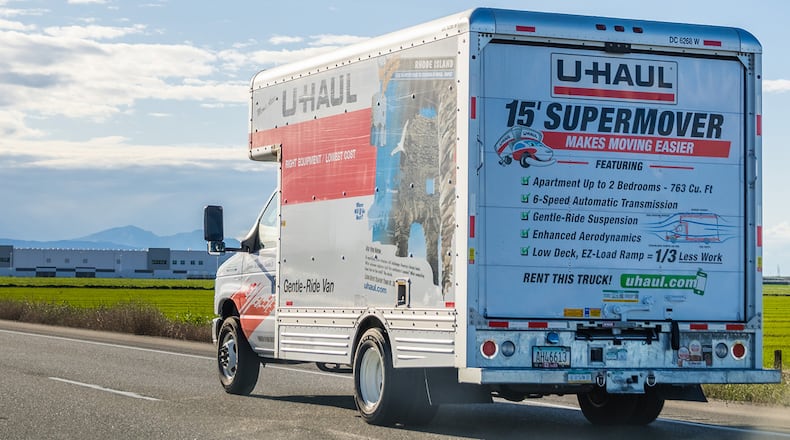Parents who only weeks ago packed up their newly minted college graduates from cottages in downtown Athens or apartment complexes in Kennesaw are now helping them load U-Haul trucks for career moves to Washington, D.C., or New York City.
We’ve come to regard leaving hometowns and families as a rite of passage for young people on the path to success. A new study by a Georgia State University professor casts doubts on just how much of a rite that is for most Americans.
“Our study challenges the notion that there is this breakdown of American families, a narrative that we hear a lot,” said GSU sociologist Amy Spring, lead author of the study published in the Journal of Marriage and Family. “What surprised us in this study is how very common it is to stay near family. The narrative that families don’t matter or that people won’t hesitate to move across the country is not true for most people.”
Based on 40 years of demographic data, the study revealed that it is true for one group — high-income, educated white Americans whose values often become the forefront of cultural narratives.
“The norm that gets accepted society wide tends to be the white, high-income norm. It’s the norm that comes to dominate the media. People overestimate how much of it is true,” said Spring.
Credit: Contributed
Credit: Contributed
In general, Spring said, “Young adulthood is primarily by far when people make these big moves. Mobility drops off after that. Also, education — more education equals farther moves.”
Spring and her co-authors looked at data collected from the Panel Study of Income Dynamics, a study begun in 1968 to chart how race and income affect kinship proximity. Their analysis showed high-income white Americans have increased how far away they live from family members, while moving rates for other race and income groups remained stable. Relatively close proximity to kin remains an enduring part of family life for Black families of all incomes, according to the study.
Included are higher-income Black families, who have the financial means to move farther from their families but choose not to do so.
“It is not that they are stuck near their families,” said Spring. “They have the money and education so they could move. There are a multitude of reasons they might stay near family. It could be they are providing care to a family member or their family culture emphasizes staying close. It may provide a buffer against the stress of the racism they experience in the world. There may be many psychological and material benefits to staying near their family.””
Having moved nearly 3,000 miles herself from the Pacific Northwest to Georgia, Spring focuses her research on neighborhood context, residential mobility and spatial inequality.
Her latest study counters the belief that geographic mobility equals success and that those who choose to stay near their families somehow took the lesser path. “There shouldn’t be a bias that one is better than the other,” she said.
As someone whose career also took me far away from family, I realized later in life that those decisions come at a price that may not be apparent to 23-year-olds. You have to create a replacement network for those distant families, not only for Thanksgiving dinner but for those middle-of-the-night calls when the furnace goes out or a fallen tree branch shatters your car windshield.
“Whenever I have to write down an emergency contact at school, I realize that I need some good friends to put down on these forms to pick up my kids, roles that families would normally fill,” said Spring. “In the research more broadly, one thing we know is that when push comes to shove, family members are the ones who people tend to rely on the most.”
Those upper-middle-class white Americans opting to increasingly live farther from family have to rely on institutional substitutes, such as Instacart and nannies, said Spring.
“People often think it will be fine, that they can transcend the distance,” said Spring. “People underestimate the cost of moving. That doesn’t mean they are wrong to move. There are both costs and benefits, and the way we weigh those can depend on our race, income and gender. People are doing different calculations when they decide to move and when they actively choose to stay near their family.”
About the Author
The Latest
Featured




